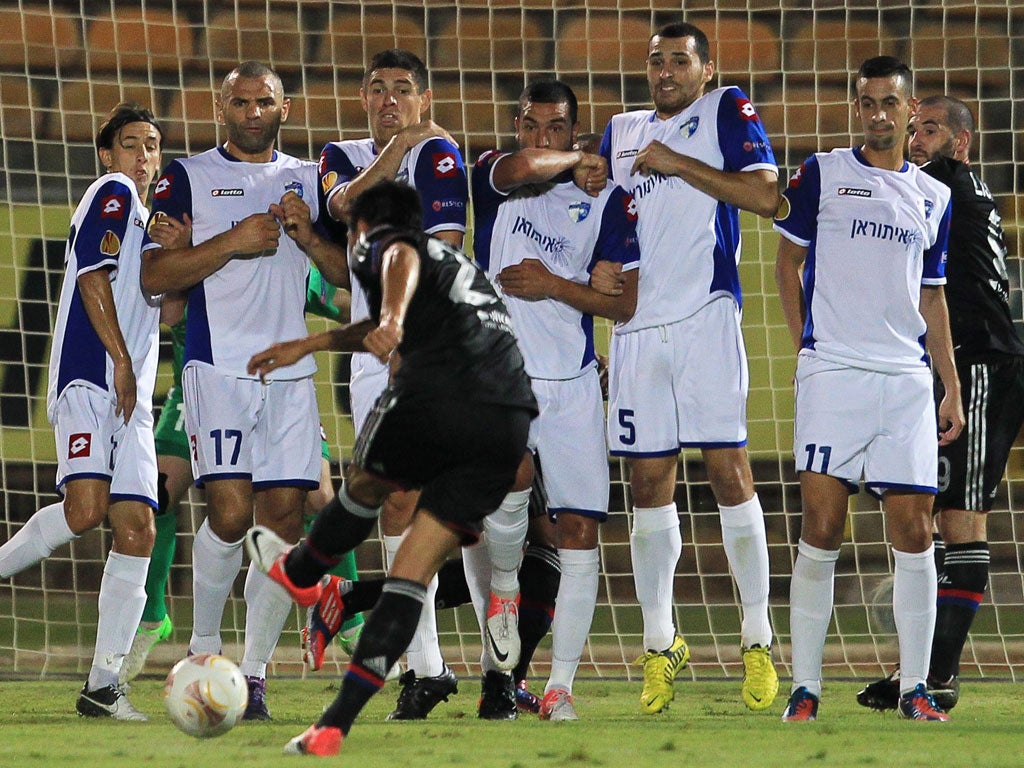
The set-piece goal used to provide one of football's greatest thrills; now it is an endangered species in elite European football. New research shows its astonishing decline over the past decade.
The Champions' League is particularly poorly served, with Uefa recording a drop from 35 per cent of goals in 2001-02 to 22 per cent last season. The return from corners was described as "unimpressive". The European governing body's statistics show that there was only one goal scored for every 46 corners in the 2011-12 Champions' League – or 27 from 1,250 delivered. For Euro 2012, the rate was even worse, with one every 57.
Andy Roxburgh, the former Scotland manager who has been responsible for producing Uefa's Champions' League technical report, said: "What I find amusing is how the crowd gets excited when [the ball] goes for a corner. When you see those numbers, you wonder why they're getting so excited."
The same could be said of free-kicks, given that only six players scored directly from them in the whole of last season's Champions' League. "The spying on teams has become so sophisticated now. One [coach] said he only prepares a special free-kick for a special match because once you've done something unusual, everybody knows about it," said Roxburgh, who stepped down as Uefa's technical director last week after 18 years.
Without the element of surprise "delivery is everything", and Roxburgh wonders whether players are working enough on the art. "David Beckham was obsessive about practices, I remember watching him and [Luis] Figo at Real Madrid practising for an hour after training. [I wonder] whether there are enough younger ones willing to dedicate themselves to that practice to become the specialist."
The modern preference for strikers who are "very mobile rather than being a [Peter] Crouch or [Andy] Carroll type" is another factor, ensuring there are simply fewer genuine threats in the penalty box.
Roxburgh also says that defending has become more "sophisticated", but cynical seems a better word. Graham Taylor, the former England manager, agrees. "There is too much pulling of shirts and blocking people off. Every now and then the referees will pull people to one side and warn them, but it is still going on."
Taylor took Watford and Aston Villa to second place in the old First Division with a style in which set-pieces were vital. "I emphasised that these are positions of goalscoring opportunity for you and therefore don't mess about. We worked out two or three free-kicks and corners. Even if someone was scouting us, if we took them and got the delivery right, it would be very difficult to stop us getting a shot on goal."
Taylor points to Stoke's approach – 58.35 per cent of their League goals last season were from set-plays – as evidence, while Arsenal's figure was a mere 13.5 per cent. Roxburgh recalled a conversation with Arsène Wenger last year when the Gunners' manager said "the ball is on the ground nearly all the time, it is all about possession play now".
But not all the time. As Taylor notes: "[When] you have to beat sides who have got on paper better players than you, one of the ways is if you do get a corner or a free-kick." And not just in England; Chelsea's solitary corner in last season's Champions' League final led to Didier Drogba's headed equaliser, and the rest, as they say, is history.
Corners can count
David Beckham's two kicks brought the goals by Teddy Sheringham and Ole Gunnar Solskjaer in injury time which won Manchester United the Champions' League final in 1999 against Bayern Munich.
Bayern had 20 corners to Chelsea's one in last season's Champions' League final but Juan Mata's delivery for Didier Drogba was the decisive one.
Borussia Dortmund outclassed Manchester City in the Champions' League last Wednesday, but their failure to clear Aleksandar Kolarov's late corner led to City's last-minute penalty equaliser.
Simon Hart
Subscribe to Independent Premium to bookmark this article
Want to bookmark your favourite articles and stories to read or reference later? Start your Independent Premium subscription today.

Join our commenting forum
Join thought-provoking conversations, follow other Independent readers and see their replies